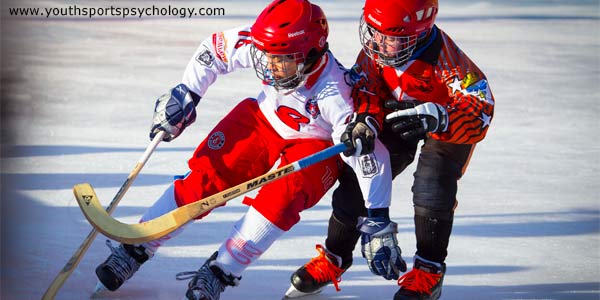
How to Be Mentally Prepared for Adversity
Do your sports kids embrace unexpected challenges, seeing them as a way to discover new ways to keep moving forward? Or do these challenges dissuade them from reaching their athletic goals?
Kids need to expect the unexpected. In fact, they should prepare for the unexpected.
All athletes face adversity. Gymnasts will fall in major competitions, softball and baseball players will suffer injuries, soccer goalies will give up last-minute goals and hockey players will be caught out of position.
Young and adult athletes alike face unexpected challenges. Athletes who are most likely to be prepared are those with resilience, confidence and mental toughness.
Athletes, coaches and parents have all told us about their experiences with the unexpected and have shared ways that they prepare.
A coach who responded to one of our surveys said his team is having a difficult time dealing with adversity and other challenges.
“I need my athletes not to be frustrated when they fall short. To make them accept the fact that there will be times when they are going to struggle, but somehow they must maintain confidence in their abilities.”
Coaches frequently say, “Expect the unexpected. Anything can happen in the heat of battle.” To be prepared, young athletes need to have a plan or mental strategy that they can turn to when the unexpected strikes.
While you may provide guidance on adversity, you also need to teach athletes to be prepared mentally when adversity strikes.
For example, what is your team’s response if the top athlete on your team gets injured? All too frequently, the team becomes dejected. You can see it in team members’ body language. You can see them start to lose confidence.
Even though athletes understand that injuries are part of the game, they often aren’t mentally prepared. That can lead to poor performance.
Young athletes need to learn how to feel confident about their abilities when such challenges pop up.
The Philadelphia Phillies are confronting this very challenge as they are faced with some tough circumstances fighting for a playoff berth as the 2020 season winds down. With 13 games remaining in the regular season, starting pitcher Jake Arrieta suffered a hamstring injury that will sideline him for the rest of the season.
After his injury, Arrieta discussed the importance of mental toughness. He said the team needs to pull together to overcome unexpected events.
“It’s just another chapter in our story that we have to continue to write and play out the remainder of the season,” said Arrieta. “Nobody said it was going to be easy, right? It seems like this is pretty much rock bottom for us after playing such great baseball for [an 11-game] stretch, going [10 of 11]. It just shows you how quickly this game can flip flop.”
Kids are going to grapple with injuries and other difficult circumstances. When they are mentally prepared for the unexpected, they can change their mindset about adversity, and focus on continuing to work toward their goals. Mental toughness and mental preparedness provide the boost needed to meet and overcome the unexpected.
To help sports kids prepare for the unexpected, talk to them about how to handle adversity instead of giving them a game-time pep-talk.
Ask what mental toughness means to them and how mentally tough athletes would respond in challenging circumstances. Talk about what mental toughness looks like and how they can practice mental toughness. To prepare, they can focus on building their confidence, improving their focus and learning how to avoid being distracted.
It’s not realistic for young athletes to assume they won’t encounter speed bumps or obstacles. While they shouldn’t expect the worst, they need to be mentally flexible enough to respond to adversity when it pops up and surprises them.
If the ref makes calls they don’t like, they need to roll with the calls, rather than letting them upset them. If a rainstorm soaks them to the bone, kids need to focus on what they need to do–and not on being wet. And when teammates experience injuries, they need to step up to the plate and play with confidence–instead of letting the injury get them down.
Related Articles on Kids’ Mental Game:
- Challenges for Athletes in the Age of Social Media
- The Challenges with Being Your Kid’s Coach and Parent
- Identifying Confidence Challenges in Young Athletes
*Subscribe to The Sports Psychology Podcast on iTunes
*Subscribe to The Sports Psychology Podcast on Spotify
Improve Your Mental Game From Anywhere In The World

We’re certain that, as a parent, you want to help your child develop confidence and discipline in sports and life. And as a sports parent, you’d love for your children to reach their potential in sports. But encouraging your child to strive for greatness without pressuring them can be a challenge.
You can get expert mental coaching with us from anywhere. Meet with us via Zoom, Skype, FaceTime or phone call. With today’s video technology, we are able to connect with athletes and coaches all over the globe.
Call Us Today to Schedule Your Free 15-Minute Session.
Find Out How Your Athlete Can Benefit From One-on-One Mental Coaching!
